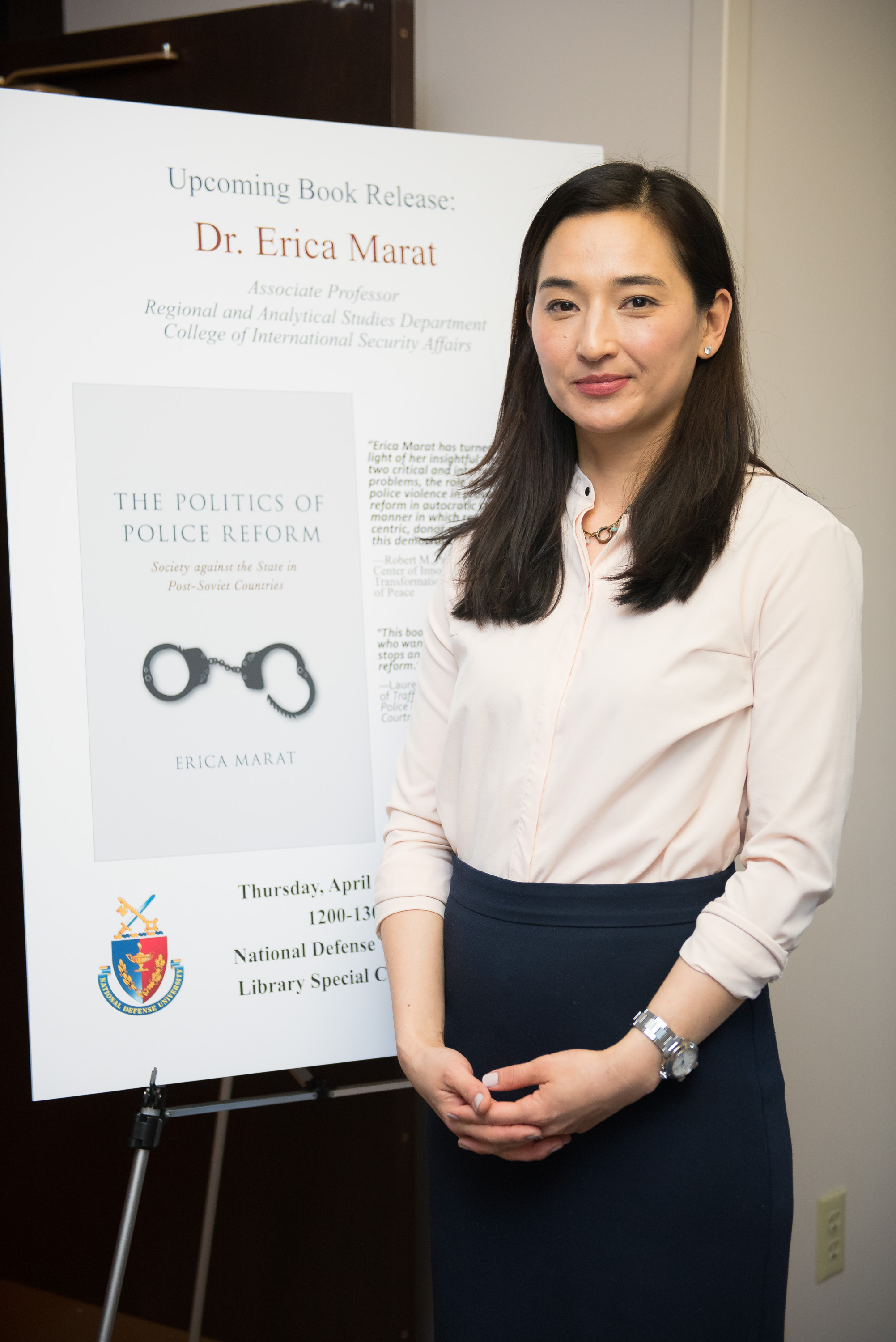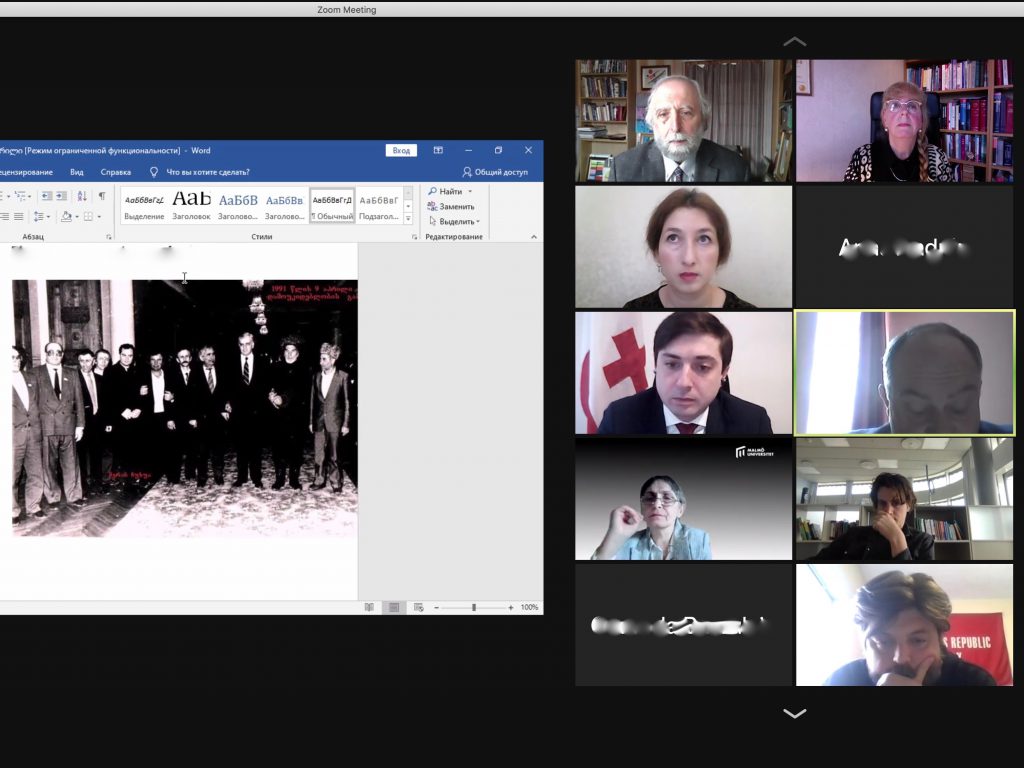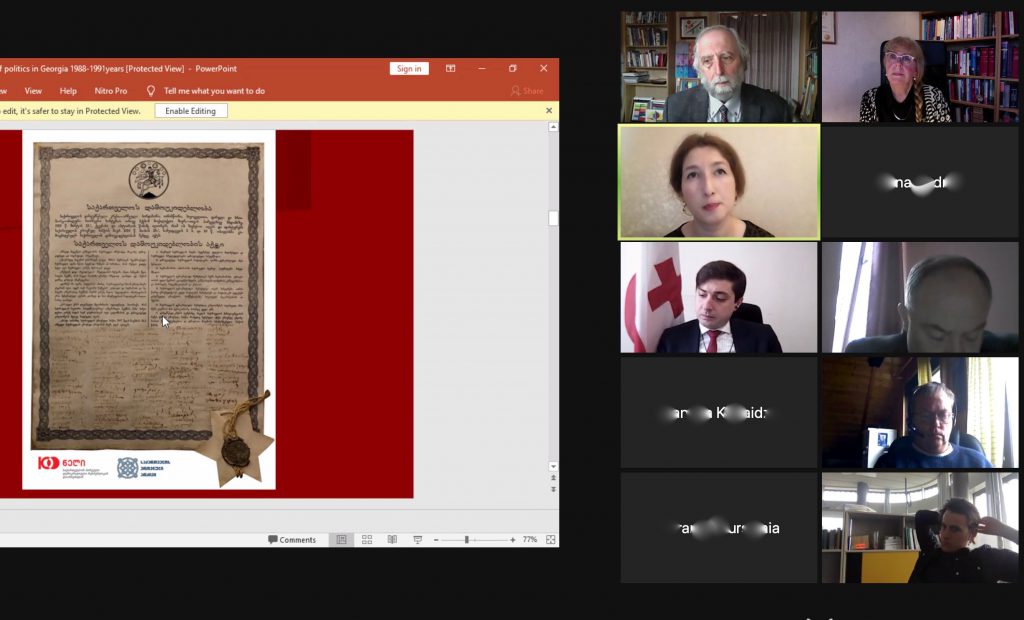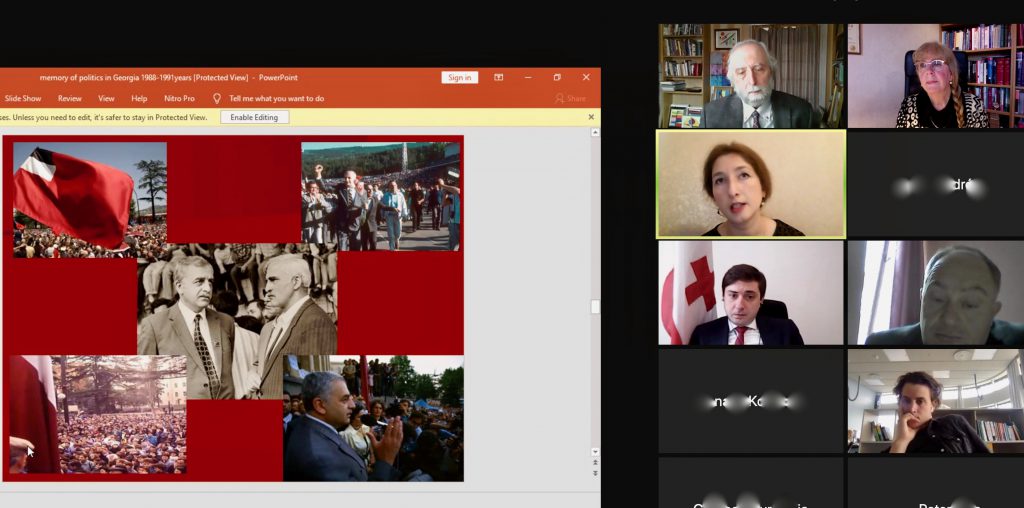 The role of traditional rituals in resisting energy injustice: The case of hydropower developments in Svaneti, Georgia
The role of traditional rituals in resisting energy injustice: The case of hydropower developments in Svaneti, Georgia
RUCARR seminar with Dr. Nino Antadze (University of Prince Edward Island)
October 19, 3.15 pm (zoom)
Abstract
This study with co-author Kety Gujaraidze intervenes in the energy justice literature by bringing to the foreground the local, emplaced, and bottom-up perspective. We specifically explore the potential of place-based agency, expressed in the form of traditional rituals, to expand the repertoire of extra-institutional means of resistance against various manifestations of energy injustice. We investigate the recent developments in the hydropower sector in the Svaneti region of the Republic of Georgia. Based on a qualitative research design involving personal interviews and document analysis, we explain how and why the traditional ritual of taking the oath of unity on the icon of St. George has been used to oppose hydropower developments, and how the employment of this extra-institutional action is linked to the changed political opportunity structure. In addition to underscoring the need to recognize and respect the cultural and religious importance assigned to traditional rituals by local communities, the findings of our study imply a need to consider traditional rituals not merely as symbolic or/and performative means of resistance, but also as political tools that may have a significant impact on the development of energy projects.
Bio
Dr. Nino Antadze is an Assistant Professor of Environmental Studies at the University of Prince Edward Island (Canada). Dr. Antadze studies environmental planning processes with the emphasis on environmental and energy justice, and large-scale environmental change with the focus on climate justice and just transitions. Dr. Antadze earned a PhD in urban and regional planning from the University of Waterloo, Canada. She also holds an MSc in Environmental Management and Policy from Lund University, Sweden and an MSc in Environmental Sciences and Policy from Central European University, Hungary.





 Dr. Marat’s research focuses on violence, mobilization and security institutions in Eurasia, India, and Mexico. During our seminar, she will present her book – The Politics of Police Reform: Society against the State in Post-Soviet Countries. What does it take to reform a post-Soviet police force? Across the region, the countries inherited remarkably similar police forces with identical structures, chains of command, and politicized relationships with the political elite. Centralized in control but decentralized in their reach, the police remain one of the least reformed post-communist institutions. As a powerful state organ, the Soviet-style militarized police have resisted change despite democratic transformations in the overall political context, including rounds of competitive elections and growing civil society. This book explores the conditions in which a meaningful transformation of the police is likely to succeed and when it will fail. Based on the analysis of five post-Soviet countries (Ukraine, Georgia, Kyrgyzstan, Kazakhstan, and Tajikistan) that have officially embarked on police reform efforts, the book examines various pathways to transforming how the state relates to society through policing. It develops a new understanding of both police and police reform. Departing from the conventional interpretation of the police as merely an institution of coercion, this study defines it as a medium for state-society consensus on the limits of the state’s legitimate use of violence. Police are, according to a common Russian saying, a “mirror of society”—serving as a counterweight to its complexity. Police reform, in turn, is a process of consensus-building on the rationale of the use of violence through discussions, debates, media, and advocacy.
Dr. Marat’s research focuses on violence, mobilization and security institutions in Eurasia, India, and Mexico. During our seminar, she will present her book – The Politics of Police Reform: Society against the State in Post-Soviet Countries. What does it take to reform a post-Soviet police force? Across the region, the countries inherited remarkably similar police forces with identical structures, chains of command, and politicized relationships with the political elite. Centralized in control but decentralized in their reach, the police remain one of the least reformed post-communist institutions. As a powerful state organ, the Soviet-style militarized police have resisted change despite democratic transformations in the overall political context, including rounds of competitive elections and growing civil society. This book explores the conditions in which a meaningful transformation of the police is likely to succeed and when it will fail. Based on the analysis of five post-Soviet countries (Ukraine, Georgia, Kyrgyzstan, Kazakhstan, and Tajikistan) that have officially embarked on police reform efforts, the book examines various pathways to transforming how the state relates to society through policing. It develops a new understanding of both police and police reform. Departing from the conventional interpretation of the police as merely an institution of coercion, this study defines it as a medium for state-society consensus on the limits of the state’s legitimate use of violence. Police are, according to a common Russian saying, a “mirror of society”—serving as a counterweight to its complexity. Police reform, in turn, is a process of consensus-building on the rationale of the use of violence through discussions, debates, media, and advocacy.



 Dr. Peter Eltsov, Associate Professor of International Security Affairs at the College of International Security Affairs, National Defense University (Washington), presents his recent book The Long Telegram 2.0: A Neo-Kennanite Approach to Russia. When: April 12, 4-6 pm (zoom, CET)
Dr. Peter Eltsov, Associate Professor of International Security Affairs at the College of International Security Affairs, National Defense University (Washington), presents his recent book The Long Telegram 2.0: A Neo-Kennanite Approach to Russia. When: April 12, 4-6 pm (zoom, CET)
 Welcome to the RUCARR zoom seminar on February 9, 15.15.
Welcome to the RUCARR zoom seminar on February 9, 15.15. RUCARR uppmärksammar två nyutkomna och aktuella böcker om Ryssland: Hans-Wilhelm Steinfelds ”Putin” och Geir Flikkes ”Ruslands rebeller”, båda utgivna på norska av Cappelen Damm.
RUCARR uppmärksammar två nyutkomna och aktuella böcker om Ryssland: Hans-Wilhelm Steinfelds ”Putin” och Geir Flikkes ”Ruslands rebeller”, båda utgivna på norska av Cappelen Damm.